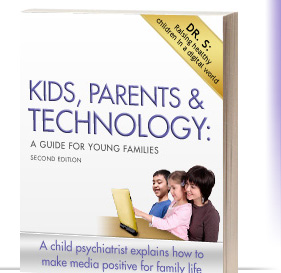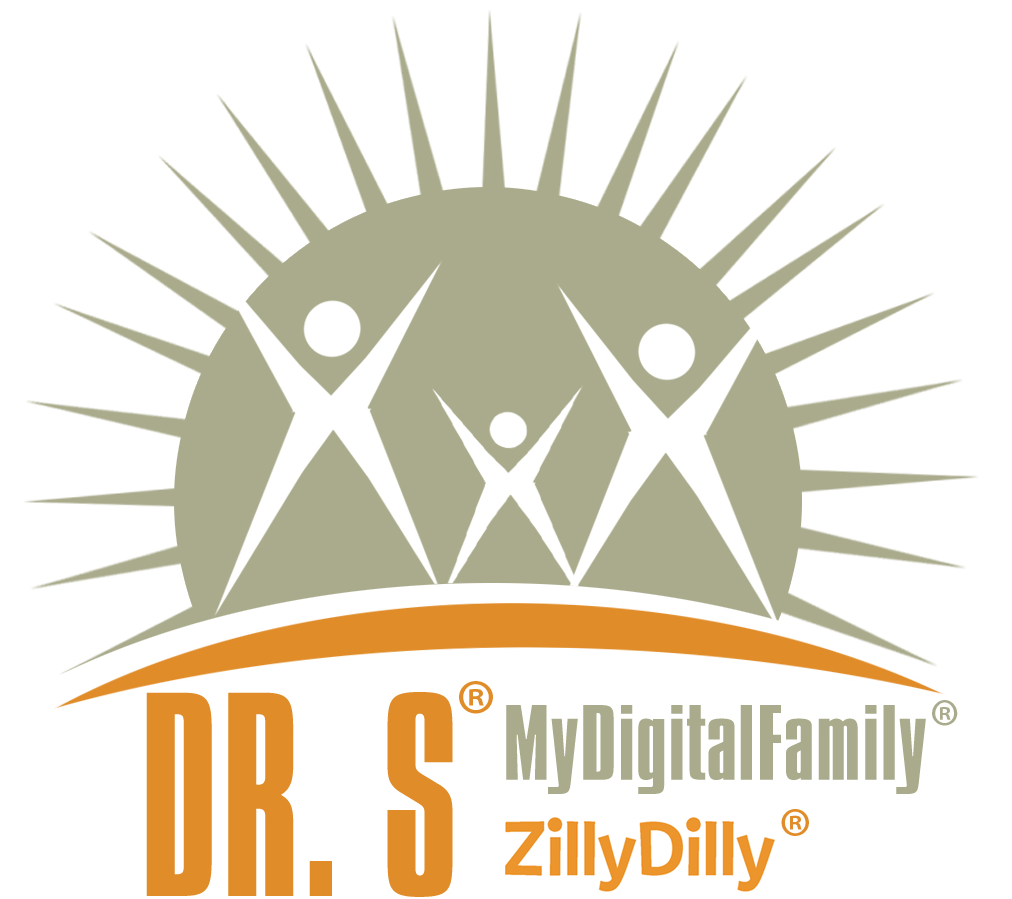12.26.09
Here’s a NEW YEAR’S resolution for parents: I will take charge of my kids’ digital media activities to make them into safe assets for development and family life. I want to keep their minds and brains ‘green.’ This will take an ongoing commitment, just like dieting or working on a marriage.
Over the past decade of working with kids and families, I have seen how interactive digital technologies have invaded homes helter-skelter and have become lightening rods for conflict, while the potential benefits have received almost no attention. In my practice, I see more and more vacant kids and families surprisingly empty and superficial.
Connectivity has exploded. It is not the same as friendship nor intimacy. In fact, connectivity seems to trivialize intimacy and friendship, except for girls of at certain ages, where it may be developmentally helpful (although certainly not necessary.) Effects on the developmentally-essential process of mastering separation anxiety and evolving individuation have not been studied, but much seems to now be up for grabs as kids reach parents in a whim and impulse and parents over-schedule and hover over them. Personal boundaries are porous. Increasing clutter and noise seem to dilute and hide authenticity and genuineness. Younger and younger kids — infants and toddlers — are given videos and digital devices without supervision. Intelligent, mobile, social, pre-programmed dolls will soon be coming for play dates with infants in their cribs and toddlers in their playpens.
Studies show that kids over eight spend eight hours daily with some sort of media, often junk. Family members have fewer interactions in homes that have more digital media, and the number of such homes is growing. Video games get a lot of discussion and press. The picture is complex, but they do seem to enhance visual-motor skills and offer some socialization and be relatively harmless (except for the obesity enhancing sedentary-ness, time eaten up, and actual damage to kids in certain high risk groups.) Long-term effects are not clear. The whole process is driven by a robust and exceptionally brilliant entrepreneurial industry — software, media, and hardware — that is a miraculous economic engine, but not at all pro-social or family- or child-centered.
I wonder if parents are aware enough about all that is going on — it seems that we are really not active enough in managing the use of new technologies to benefit family lives with healthy media diets. So, I began working in this space about 6 years ago in therapy with kids up to 18 (see my presentation at the APA 5/09 www.mydigitalfamily.org > PRESS> PRINT and chapter 12 in my book, based on sound child-development principles to guide parents. )
This topic deserves much more discussion. Technology can be a real asset in the home, as it has been elsewhere. Conditions are changing at the speed of light out there as amazing new technologies seduce kids and parents alike — and not necessarily all for the good. And this is all likely to accelerate. Parents need to be more thoughtful, plan ahead, proactive, involved, and lead rather than merely react.




Daring to Live Your Life Offline
Link to Original Article
12.30.09
Media consumption: Does it have to be all or nothing? Can we find ways to fit tech tools into our lives sensibly and selectively in ways that actually work for us? In other words, does it have to be feast or famine? Why not figure out sensible diets that allow us (and teach our kids) to consume media rather than having media consume us? Are there experts we can ask about the best ways to adapt our own media diets?
The benefits in so many ways are enormous. But the dazzling growth of accessible digital media has been driving us helter-skelter. The forces let loose are not necessarily healthy. We are so dazzled by digital gadgets (and they truly are amazing!) that we forget to consider seriously how these will eventually impact our children and family lives — and ultimately the picture is not at all pretty.
Families with more media at home have less interpersonal interactions. Media-soaked digital kids are awash in gadgets from earlier and earlier ages, and most are unsupervised and consume mostly junk. Social, mobile, interactive robotic dolls will soon visit our children’s playpens and cribs. Parents feel helpless because they do not know — except for restricting and filtering — how to guide media-saturated kids’ into healthy media consumption. Social media are full of clutter, but the noise is intrusive, overwhelming, and often trivial — and actually often distracts us from and dilutes truly gratifying authentic human contact.
Technology has brought lots of good stuff that can go into a healthy media diet that will actually enhance our lives — in moderation and the right proportions. I wrote KIDS, PARENTS & TECHNOLOGY: A GUIDE FOR YOUNG FAMILIES to guide parents pay the right kind of attention systematically and comprehensively to promote healthy media consumption in the home from early life.
We some thought, we can commit themselves to pay attention to how we use media at home and elsewhere. We can become more balanced consumers of information and media to enhance or relationships, values, socialization, and intellectual development, yet and still have fun.